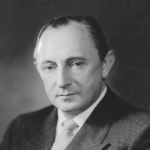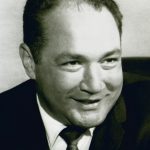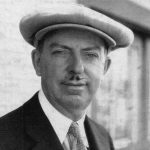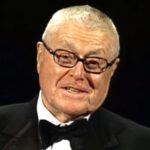A name that is both celebrated and condemned
Louis Renault’s life was defined inventiveness, determination, and later, scorn. Renault was born into a wealthy Parisian family in 1877 and developed an enthusiasm for all things mechanical and electrical. He completed his first car in 1898 at age 21, which was built on a modified cycle frame, and equipped with a three-speed gearbox of Renault’s own design. Renault’s “Direct Drive” gearbox was adopted by virtually every contemporary automaker, and brought him a great financial fortune.
In 1899, Louis Renault’s two older brothers, Marcel and Fernand, founded the Renault Brothers company to build automobiles. The brothers oversaw administrative duties, while Louis managed design and manufacturing. Sadly, Marcel would be killed in a racing incident in 1903 and Fernand would die six years later due to a prolonged illness. Louis inherited the company and began implementing a flurry of new ideas, expanding to produce vans, buses, generators and even airplanes. Renault’s factories would build tanks, trucks, ambulances, and munitions for the French Army during WWI. Renault was also the leading producer of airplane engines for the Allies and Louis Renault was awarded the Grand Cross of the Légion d’honneur for his contributions. Renault became France’s largest privately held company following the war, and Luis began benchmarking the production techniques of the American manufacturers. He followed Henry Ford’s example of moving virtually all aspects of production in-house, and even acquired his own foundries, sandpits, forests, saw mills and railroad.
Despite his company’s success, nothing could shield Renault from world events. Louis agreed to become a supplier for the French Army again in 1939, and was sent to the United States to ask for tanks just prior the Nazi invasion of France. He turned over control of his factories to Vichy France, which would indirectly mean building vehicles for the Nazi’s. Renault argued that this decision saved thousands of workers from being deported to Germany. Following France’s Liberation, Renault was arrested and jailed for trading with the enemy. He died a month later in a Paris clinic. Following Louis Renault’s death, the French government nationalized his company. Though he became a controversial figure, Louis Renault is still credited as one of the most influential early automotive luminaries in history.




